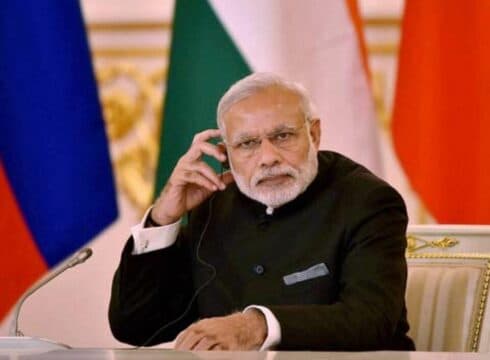The govt was seeking data for several regions for over a couple of months
These regions included Delhi, J&K, Andhra Pradesh, Himachal Pradesh and Punjab
The govt has also sought Delhi’s call records right before assembly elections and during Anti-CAA riots
Inc42 Daily Brief
Stay Ahead With Daily News & Analysis on India’s Tech & Startup Economy
Telecom industry body Cellular Operators Association of India (COAI) has raised questions about the Narendra Modi government allegedly seeking call data records (CDRs) of all mobile subscribers from telcos in several states — Delhi, Andhra Pradesh, Haryana, Himachal Pradesh, Jammu and Kashmir, Kerala, Odisha, Madhya Pradesh and Punjab. COAI has written to DoT secretary Anshu Prakash and complained about the due process not being followed.
In the complaint, the COAI mentioned that the government has not specified the names of any individual or the purpose of collecting the data through local units of the department of telecommunications (DoT), which goes against the guidelines.
As per the new guidelines of the telecom industry, which came into effect in 2013, the government is not authorised to seek such details from telecom operators without the clearance from the home secretary or officers from the ranks of Superintendent of Police (SP) and above. However, the COAI has alleged that such procedures have not been followed in this case.
Ironically, the demand to tighten the guidelines for obtaining call records was initially raised by BJP’s Arun Jaitley, who was the leader of opposition in Rajya Sabha in 2013, along with several other leaders. This was at the time, the Indian National Congress-led United Progressive Alliance was accused of having unauthorised access to CDRs.
What Is the Government Seeking?
A senior executive of one of the telecom operators, who chose to be anonymous, told Indian Express that the BJP government has been asking for CDRs for several months now. However, it started demanding mass data in January and February.
“CDRs sought for specific routes/areas may lead to allegations of surveillance, especially in a state like Delhi having numerous VVIP zones having offices and residences of ministers, MPs, Judges, etc,” the COAI said in its complaint.
Eventually, the government through the local units of DoT specified certain days for CDR collection for every region on a monthly basis. The pattern goes as follows:
- Andhra Pradesh: 1st and 5th day of the month
- Delhi: 18th day of the month
- Himachal Pradesh and Jammu & Kashmir: Last day of the previous month
- Kerala and Odisha: 15th day of every month
- Madhya Pradesh and Punjab: Last day of the previous month and first day of the current month
Besides this, COAI also added that the government also collected CDR for February 2, 3 and 4 this year, right before Delhi Assembly elections of February 8. Around that time, Delhi was also the hotbed of the anti-Citizenship Amendment Act (CAA) protests, and soon after riots erupted in parts of the city, allegedly perpetrated by supporters of the act.
The government has also been accused of surveilling the protests through face recognition technology and drones, for which the Internet Freedom Foundation (IFF) had also sent a legal notice to the government.
A former chairperson of TRAI told Indian Express, “This is most unusual. Once they have a database, they can query specific numbers to ascertain who spoke to whom. There must be a reason (given for asking CDR details), without which it is an arbitrary action and a violation of the right to privacy.”
{{#name}}{{name}}{{/name}}{{^name}}-{{/name}}
{{#description}}{{description}}...{{/description}}{{^description}}-{{/description}}
Note: We at Inc42 take our ethics very seriously. More information about it can be found here.


